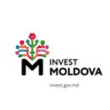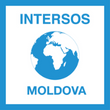Organizații vizate:
Anunțuri de Angajare
- Detalii
- Categorie: Angajări
UNDP Moldova: Programme Analyst (NPSA-9) - Environment, Energy and Climate Change Cluster (EECC)
Informațiile prezentate în articolul de mai jos pot să nu mai fie actuale sau să nu mai reflecte activitățile și programele curente. Anunțul este păstrat în arhivă pentru a asigura transparența și accesul public la informațiile despre inițiativele și proiectele implementate anterior.
Background
UNDP is committed to achieving workforce diversity in terms of gender, nationality and culture. Individuals from minority groups, indigenous groups and persons with disabilities are equally encouraged to apply. All applications will be treated with the strictest confidence.
UNDP does not tolerate sexual exploitation and abuse, any kind of harassment, including sexual harassment, and discrimination. All selected candidates will, therefore, undergo rigorous reference and background checks.
The overall objective of UNDP Moldova work in EECC area aims to contribute towards progress in achieving that the people of Moldova, in particular the most vulnerable, benefit from enhanced environmental governance, energy security, sustainable management of natural resources, and climate and disaster resilient development.
There is a long track record of UNDP’s support to Moldovan Government in the EECC area. Under its next strategic programming period and based on 2022 ICPE recommendations, UNDP CO is planning to further support the low-emission and climate-resilient development, with a special focus on advancing national green development agenda.
Moldova is still highly vulnerable to climate change, disasters, energy shocks and environmental degradation. In addition, Moldova’s sustainable development is extremely vulnerable to external and geopolitical shocks, to which the country is exposed or is likely to be exposed. The socio-economic crisis induced by the COVID-19, followed by ongoing energy and refugees crisis have not only exacerbated poverty and social exclusion, but also generated additional environment and energy-related risks and vulnerabilities. Thus, the current refugee crisis, which might result in land degradation, illegal logging, and water and soil pollution, could exacerbate the exploitation of natural resources. The local infrastructure and services for waste management might also be under threat due to the sharp increase in population, while food provision might be disrupted or simply not enough to satisfy the needs of both refugee and host communities.
Addressing these multiple impacts and increasing country’s resilience to the above mentioned crises, is requiring from UNDP a complex/portfolio approach.
Preparedness to a “new normal” and recovering greener is on the list of priorities for UNDP support under next programmatic cycle. It is also in line with country’s priority to embark in a green development agenda in response to the current environmental, energy and climate change crisis. UNDP Moldova has designed a broad Framework inspired by the region’s most comprehensive and forward-looking policy package, namely the European Green Deal. It includes important recovery tendencies: economic growth “decoupling” from natural resources use, “contactless” provision of digital goods and services and “nudging” people towards less resource-intensive behaviour, which could support higher levels of post-suppression telecommuting that can reduce air pollution and GHG emissions in urban areas.
UNDP Moldova contributes to establishing the necessary enabling environment to pursue transformational changes in the green development areas and testing innovative nature-based solutions in energy efficiency and renewable, urban mobility, land use, biodiversity conservation, waste management, etc. It is also providing support to environment NGOs, collaborating with private sector, is promoting women empowerment to pursue green economic opportunities and is testing innovative solutions to the most pressing and complex environmental problems.
Duties and Responsibilities
Under the guidance and direct supervision of the Climate Change, Environment and Energy Cluster Lead, the Programme Analyst analyses political, social and economic trends, both globally, regionally and nationally, and participates in the formulation, management and monitoring of the EECC programme activities, with a specific focus on developing and implementing the Green Transformation portfolio, green recovery measures, as well being responsible for managing the UNDP programme within the thematic/sectoral areas assigned.
The Programme Analyst supervises relevant project staff. The Programme Analyst works in close collaboration with the CO Management Support and Business Development, Programme and Operations teams, programme staff in other UN Agencies, UNDP HQs staff.
The Programme Analyst will be assigned the following functions and key results:
1. Ensures substantive contributions to the strategic positioning of UNDP in the area of EECC, focusing on achievement of the following results:
Thorough analysis and research of the political, social and economic context, both regionally and nationally, with the view to identify trends in the area of responsibility and contribute to development of UNDP CO response actions;
High quality and timely contribution provided to key strategic documents (IWP, SN, ROAR), participate in CO Programme discussions, provide at request inputs with EECC aspects in key UNDP strategic documents, offers, rapid assessments, position papers, publications and others;
Contribution provided to joint UN efforts and the "One UN" approach. UNDP is effectively represented in the UNCT Result Group No3 “Environment and Climate Change”; timely and high quality inputs for WG3 JWP planning and reporting are provided.
Ensure an active role of UNDP in the development partners’ community in the area of environment, climate and green economy, by leading and actively engaging in thematic UN Agencies/donor coordination groups. Supporting senior management participation in regular Environment and Energy Sector Council Meetings, Donors Forums, etc.
2. Participates in effective management of the EECC Cluster focusing on quality control from formulation to implementation of the country programme, achieving the following results:
Effective application of RBM tools, establishment of management targets (BSC) and monitoring achievement of results.
Design and formulation of some parts of CO programme within the area of responsibility, translating UNDP’s priorities into specific interventions.
Support to initiation of EECC projects, presentation of the project to LPAC, finalization of contribution agreement; determination of required revisions; coordination of the mandatory and budget re-phasing exercises, closure of projects through review. Application of conceptual models in support of programme design.
Financial and substantive monitoring and evaluation of the projects, identification of operational and financial problems, development of solutions. Participation in audit of EECC projects.
Quality assurance and backstopping for projects assigned, including coordination and oversight of quality assurance activities and regular update of the corporate planning and reporting modules in QUANTUM, PIMS+, etc. .
Aggregated reports are regularly prepared on activities, outputs and outcomes. Preparation of donor reports. Preparation of inputs for corporate reports.
3. Supports creation of strategic partnerships and implementation of the resource mobilization strategy focusing on achievement of the following results:
Analysis and research of information on donors, preparation of substantive briefs on possible areas of cooperation, identifying new entry points, designing new concepts /projects, active contribution to the overall office effort in resource mobilization.
Advancing joint programming opportunities with UN Agencies ( IOM, WHO, etc.) , including in the green transformation area.
Cultivate meaningful partnerships with national counterparts/government institutions, bi-lateral and multi-lateral donors, IFI’s, private sector, academia and civil society in the specific EECC thematic areas to contribute to the achievement of UNDP’s CPD current and next cycle strategic goals, country needs and donors’ priorities.
Exploring new sources of funding ( e.g. CSA with Government).
4. Provides quality advisory services to the Environment, Energy and Climate Change Cluster on advancing the Green Transformation elevation theme and use of innovative approaches and tools:
Expansion of EECC portfolio based on ICPE recommendations, mainstreaming of green transformation aspects into CO programmatic activities and projects development;
Support to defining of the country needs in the area of Green Transformation and development of a full fledged project proposal;
Design and operationalize a platform/ organize national policy dialogue on green transformation;
Support to the design of UNDP CO’s immediate and mid-term recovery initiatives in the context of the current and emerging regional and national crises ( COVID19, energy, refugees, socio-economic, etc.) by mainstreaming green transformation and green recovery aspects with implementation potential.
Ennsure cooperation with UNDP Innovation Team. Innovative approaches, methodologies and tools are id
entified and used in EECC program and projects;
Ensure continuation of experimentation with systems and portfolios approaches to develop and advanced UNDP’s value proposition for Government and other partners on Green Transformative action.
Promote inter-cluster cooperation at programmatic and project levels to identify and pursue on joint opportunities and mainstreaming green transformation and/or co-design joint project
Institutional Arrangement
The Programme Analyst will work under the supervision of the Climate Change, Environment and Energy Cluster Lead and in cooperation with the EECC Cluster and will ensure the provision of development services and products assigned under area of responsibility of the highest quality and standards.
The Programme Analyst will work in close cooperation with the team in the Country Office (CO) for effective achievement of results, anticipating and contributing to resolving complex programme/project-related issues and information delivery. The incumbent is expected to exercise full compliance with UNDP programming, financial, procurement and administrative rules, regulations, policies and strategies, as well as implementation of the effective internal control systems.
Competencies
Core Competencies:
Achieve Results:
LEVEL 2: Scale up solutions and simplifies processes, balances speed and accuracy in doing work
Think Innovatively:
LEVEL 2: Offer new ideas/open to new approaches, demonstrate systemic/integrated thinking
Learn Continuously:
LEVEL 2: Go outside comfort zone, learn from others and support their learning
Adapt with Agility:
LEVEL 2: Adapt processes/approaches to new situations, involve others in change process
Act with Determination:
LEVEL 2: Able to persevere and deal with multiple sources of pressure simultaneously
Engage and Partner:
LEVEL 2: Is facilitator/integrator, bring people together, build/maintain coalitions/partnerships
Enable Diversity and Inclusion:
LEVEL 2: Facilitate conversations to bridge differences, considers in decision making
People Management Competencies:
UNDP People Management Competencies can be found in the dedicated site
Cross-Functional & Technical Competencies:
Business Management
Results-based Management
Ability to manage programmes and projects with a focus at improved performance and demonstrable results
Business Management
Project Management
Ability to plan, organize, prioritize and control resources, procedures and protocols to achieve specific goals
Business Management
Risk Management
Ability to identify and organize action around mitigating and proactively\ managing risks
Business Management
Monitoring
Ability to provide managers and key stakeholders with regular feedback on the consistency or discrepancy between planned and actual activities and programme performance and results
Digital & Innovation
Agile' methodologies and practices
Ability to manage projects and processes through continuous iteration, learning and improvement. Ability to manage a self-organising cross-functional teams, foster a team culture of curiosity and learning. Being nimble and being able to improvise and quickly adjust to unforeseen events or changes in conditions or context.
Digital & Innovation
Futures & foresight
Ability to look at information from the past and present, identify patterns and trends and use them to inform decision making with a long-term view. Being sensitive and able to scan horizons and pick up weak signals of change, explore their potential implications and assess their impact and urgency. Using creativity and imagination to communicate insights in compelling and engaging ways to challenge current mental models; ability to develop scenarios, speculative designs to present future visions or by making it experiential. Being able to facilitate debate and discussion about possible futures; help people to feel comfortable with the discomfort of uncertainty.
Partnership management
EU Partnerships
Knowledge and understanding of EU strategies, approached, processes and systems
Required Skills and Experience
Education:
Master’s Degree in environmental studies, energy, engineering, business administration, economics or related areas
Bachelor’s Degree with additional two years of experience will be given due consideration in lieu of Master`s degree
Experience:
2 years (with Master’s degree) or 4 years (with University Degree)of progressive working experience at the national or international level in areas related to the environment and/or energy, in the design, management and implementation of programmes and/or working in a relevant position to this post.
Languages:
Fluency in oral and written English, Romanian and Russian is required.
Working knowledge of one or more additional languages relevant for Moldova, including Bulgarian, Gagauzian, Romani, Ukrainian or sign language is an asset.
Additional desired skills and experience:
Previous experience in development assistance or related work for a donor organization, governmental institutions, NGO or private sector / consulting firm is a very strong advantage.
Prior experience with UN/DP Project management and/or implementation is an additional advantage.
Knowledge of and experience in gender mainstreaming.
Experience in working and collaborating with governments and regional/local administrations.
Initiative and strong leadership skills
Professional Certificates:
Additional training and certification in project management and/or business administration would be an advantage.
The following documents shall be required from the applicants:
Personal CV or P11, indicating all past positions held and their main underlying functions, their durations (month/year), the qualifications, as well as the contact details (email and telephone number) of the Candidate, and at least three (3) the most recent professional references of previous supervisors. References may also include peers.
A cover letter (maximum length: 1 page) indicating why the candidate considers him-/herself to be suitable for the position.
Managers may ask (ad hoc) for any other materials relevant to pre-assessing the relevance of their experience, such as reports, presentations, publications, campaigns or other materials.
Disclaimer
Applicant information about UNDP rosters
Note: UNDP reserves the right to select one or more candidates from this vacancy announcement. We may also retain applications and consider candidates applying to this post for other similar positions with UNDP at the same grade level and with similar job description, experience and educational requirements.
Scam warning
The United Nations does not charge any application, processing, training, interviewing, testing or other fee in connection with the application or recruitment process. Should you receive a solicitation for the payment of a fee, please disregard it. Furthermore, please note that emblems, logos, names and addresses are easily copied and reproduced. Therefore, you are advised to apply particular care when submitting personal information on the web.
Vacancy End Date: 26 September 2022
To apply please address the link: https://bit.ly/3cf9zdD
- CNTM selectează facilitator/facilitatoare pentru prestarea serviciilor de consultanță în cadrul Youth Policy Labs
- Concurs prelungit pentru selectarea consultantului local tematic în vederea implementării Reformei 4.6.17–18 „Îmbunătățirea calității prestării serviciilor de sănătate la nivel național”
- Prezentator / prezentatoare știri TV (weekend)
- BNM angajează expert/ă principal/ă, Direcția supravegherea altor instituţii
- Senior Legal Advisor of Prosecutors Vetting Commission
2025 CIVIC DIGITAL SOLUTIONS
Email: support@portal.civic.md








